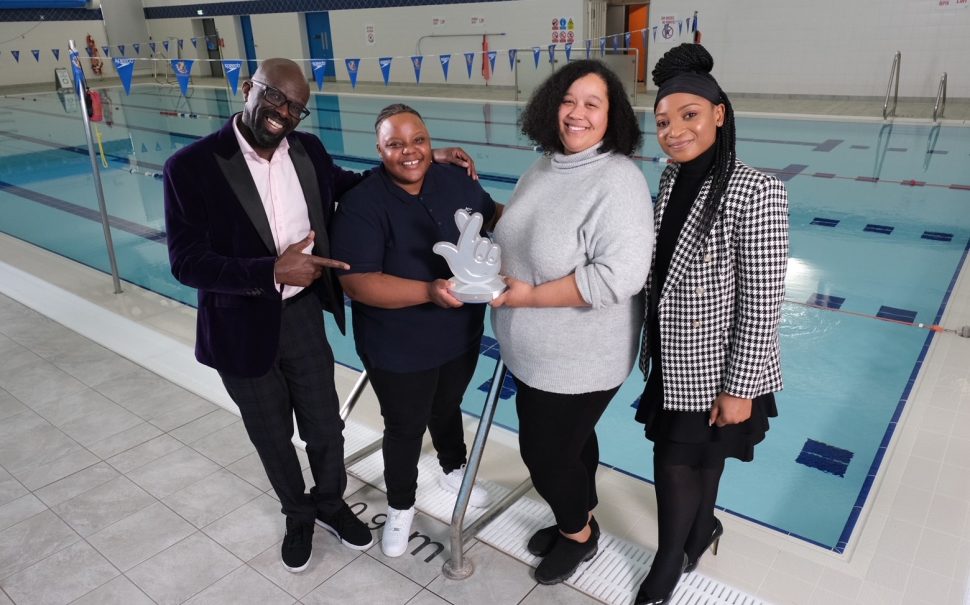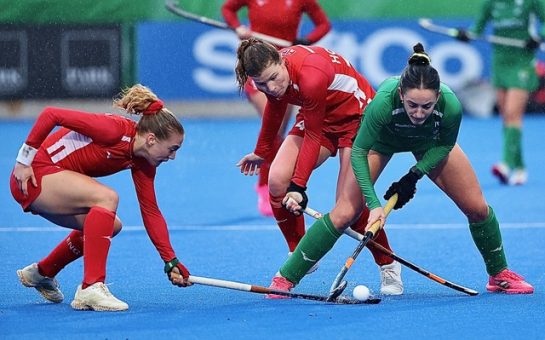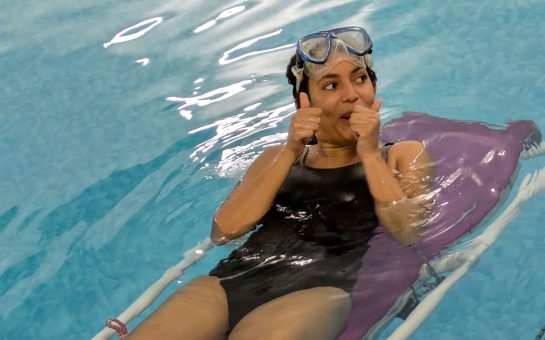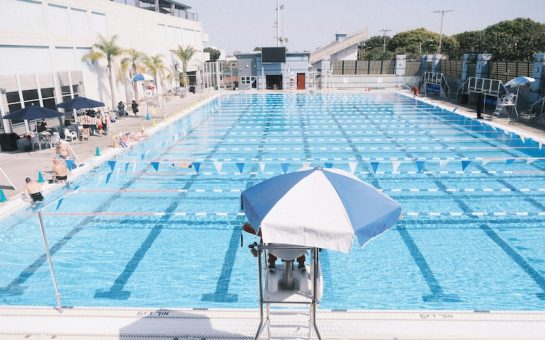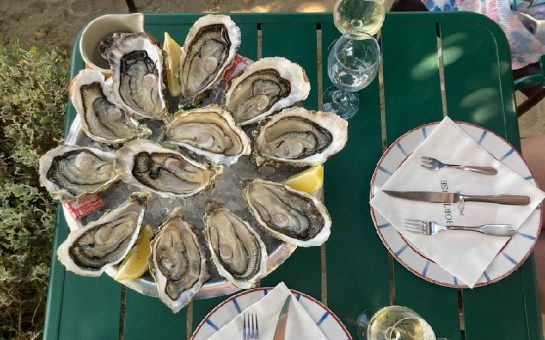Swimming may be a holiday pastime for many, but for Danielle Obe it is the most important life skill of all.
Obe, a strategy and senior management consultant had already started working alongside documentary-maker Ed Accura, history-making swimmer Alice Dearing – the first Black woman to swim for Britain at the Olympics – and former elite swimmer Seren Jones to create the Black Swimming Association (BSA), when a tragedy close to home reinforced the reality of the threat of water.
At the end of 2019, a heart-breaking accident in Spain saw three members of the same family drown in a hotel pool on Christmas eve. And with a personal connection to the Diya family, Obe knew the only way forward was to act.
“I have three children of my own. The thought of a family going off on holiday and losing three members to drowning is truly heart-wrenching.
“This was no longer about swimming not being a cultural norm, it was about water safety.”
Under Obe’s leadership, the BSA has gone from a simple concept to a nationally recognised fledgling organisation positioned as a transformative force within the aquatic and non-aquatic sector.
Officially launching in early 2020, the vision of the BSA is to work towards a future with ethnic diversity in aquatics, an element that is both necessary and unprecedented, with the objective of promoting water safety, drowning prevention and showcasing the benefits of aquatics to people of African, Caribbean and Asian heritage in the UK.
Despite the Covid-19 pandemic and the nationwide shutdown of swimming pools, it quickly became an important voice in the swimming world and has now been named 2022 National Lottery UK Project of the Year after a public vote, beating off stiff competition from more than 1300 organisations.
The organisation will now receive the £5,000 cash prize as well as an iconic National Lottery Awards trophy.
Official participation figures from Sport England pre-covid show that amongst Black and Asian communities: 95% of Black adults; 80% of Black children do not swim. And 93% of Asian adults and 78% of Asian children also do not swim.
There are significant barriers that preclude Blacks and Asians from participating in swimming and general aquatic activities or sport. Hair is one of the most significant barriers.
“Hair is our crowning glory,” says Obe. “Throughout history, hair has been a symbol used to identify status, wealth and religion. All hair is beautiful, but not all hair is the same. Caucasian hair, is largely easier to manage, maintain and style. By comparison, Black hair care requires a significant investment in time, money, and maintenance.”
Obe herself was taught to swim at a young age but swapped the pool for the corporate world in her twenties, struggling to swim and maintaining her hair for her workplace.
She said: “I gave up my love for the water for about 18 years. Becoming a mother set me on a quest to find a solution to keep my daughter in the water.
“Swimming lessons were an arduous ordeal. I’d have to prime hair before she gets in the water and then wash and condition after every swim, with her kicking and screaming. One day it actually led to some trouble.”
Obe found herself with a safeguarding issue after her daughter, who refuses to have water or soap around her face, was screaming in their local health club whilst having her hair washed.
The screaming led to a safeguarding call against Obe who suddenly found herself questioned for trying to care for her daughter.
“I was just trying to shampoo my daughter’s hair and the two women questioning me didn’t understand,” said Obe.
“They were two lovely blonde ladies who could just go into the pool, get out and just wash their hair and go home. That doesn’t work for hair like ours. “Luckily I had grown a relationship with these women being one of the few ethnically diverse families who regularly used the club.
“If I hadn’t known them, that could have been a big issue with social services.
“Once they left, I looked at my daughter with tears in my eyes and made her a promise. To find a solution for her hair so she could find her love for water.
“That swim cap that was unable to keep her hair dry for her lesson was symbolic for so much more. It represented her freedom. Her empowerment. Her opportunity. Her happiness. And her safety in and around water.
“Away from the pool, I started to think about – as a community – what we use to protect our hair. Then it dawned on me…a wrap. Wrapping our hair is part of our culture. It is what we do. What if it could be revolutionised to protect our hair from water, whilst looking good doing it? Would that help make water more accessible to people like me?
“Obé was born. A waterproof scarf. Not a cap, a scarf. A tool to empower women and girls to feel confident and protected around water. The opportunity to participate in aquatics without the associated barriers.
“What began as a quest to enable my daughter to learn a vital life skill, has led to the invention of a tool for inclusion, and the co-founding of the BSA which has gained national recognition, successfully established key partnerships in both the aquatic and non-aquatic sectors and is now positioned as an advocate, strategic partner, and delivery agent for water safety education, drowning prevention, diversity and inclusion in aquatics.”
And with The National Lottery’s support of the BSA, Obe is now hopeful that she can continue to break barriers in aquatics for all ethnicities.
She said: “Our receipt of The National Lottery Project of the Year Award is beyond compare.
“We are just under three years old as a charity and I can’t articulate what it means to me as chair of the BSA, as a mother and as a young Black woman who is using her voice as best I can to ensure that we tackle inequalities and drive for more inclusion and participation in all things aquatics.
“We came on to diversify a sport and now we are diversifying the only sport that’s also a vital life skill.”
National Lottery players raise more than £30 million each week for good causes including grassroots and elite sport. For more information about The National Lottery Awards, visit lotterygoodcauses.org.uk and follow the campaign on Twitter @LottoGoodCauses #NLAwards.
